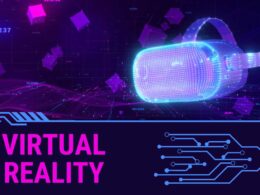Transforming Canadian Education
The education system in Canada is changing. We’ve seen new technologies like iPads, laptops and other devices enter the classroom, and we’ve seen a shift away from traditional teaching methods. But what’s the next step? Artificial intelligence (AI) will be the next major change in education – and it has the potential to be one of the biggest changes ever.
AI won’t replace teachers, it will help them.
AI can help teachers focus on the students who need more help and allow them to spend more time on their teaching duties. Teachers are already using AI to grade student essays, which saves them time and gives them an objective analysis of how well their students are writing.

AI will give students more freedom
AI can help teachers create lesson plans that are customized to each student’s needs, allowing them to learn at their own pace. This will help students who are struggling with a topic or concept catch up with the rest of their classmates, while also giving those who understand it well enough the chance to move on faster than normal. In addition, AI allows teachers more time for one-on-one tutoring sessions with students who need extra help understanding certain concepts–a luxury that simply hasn’t been possible until now!
Students will also be able to choose their own projects based on what they want out of education: whether they want this project done by tomorrow morning or next month doesn’t matter because AI will give them what they need when they need it (and maybe even before then). Finally, AI gives students access both inside and outside of class; if there’s something specific about school life that concerns you then don’t hesitate – ask away!
Artificial Intelligence in Education will change how we teach history and social studies.
AI will allow us to teach students about history and social studies in new ways. It can help them learn more about their own culture, other cultures, as well as the world around them.
For example: A student who is learning about World War II might be able to ask an AI-powered app questions like “what was the Holocaust?” or “who were Hitler’s allies?” The app would then provide accurate answers based on what it knows from reading thousands of books and news articles online. This type of information is often difficult for teachers because they don’t have enough time to read everything they need to know before teaching a lesson; however with AI we could potentially provide all that information at once!
The importance of learning how to learn
Learning how to learn is a lifelong skill that will help you in every aspect of your life. It’ll help you do better at school, get a job and advance in your career, and even be more successful in relationships. AI can help students develop this important skill by providing them with resources that teach them what they need to know about learning efficiently.
Imagine if there was an app that could tell you exactly where all the information related to any given topic was located on the Internet? Or what if there was an AI program that could explain how someone solved a problem so well that it made sense even when they were solving something else? These tools are already available thanks to artificial intelligence in education!
AI can help students focus on what is important, not just what they like.
AI can help students focus on what is important, not just what they like. AI has the potential to change the way we teach and learn by providing personalized instruction that fits each student’s needs. By analyzing patterns in student data, such as attendance records or test scores, AI can provide teachers with insights into their students’ strengths and weaknesses so that they can better tailor lessons accordingly. For example, if a student has consistently been doing poorly on an essay exam but excels at multiple choice questions about the same topic (such as history), then this suggests that perhaps the teacher should spend more time focusing on those areas where that particular student needs improvement instead of continuing to teach everything equally across all students regardless of their needs or preferences.
Students need better feedback than just “good job” or “you’re wrong”.
As students, we need better feedback than just “good job” or “you’re wrong”. We need to know why we are wrong so that we can correct our mistakes in the future. This is especially important for students who are learning English as a second language (ESL). If they don’t know how to use certain words or phrases correctly, they won’t be able to communicate effectively with others.
The same goes for teachers as well; they need better feedback on how well their lesson plans are working out in practice so that they can adjust them accordingly and give students more targeted lessons based on their individual needs.

The future of education will be shaped by AI but eager to see how we implement it right
As artificial intelligence in education evolves, it will not only help teachers teach, but also students learn. By prioritizing what’s important and helping us focus on that information, AI can make for a more engaging learning experience for all involved.
Once we have mastered the art of implementing AI in our classrooms effectively (and I hope we do), the next step will be to figure out how best to use this technology outside of school walls–in homes and communities around Canada and beyond!
The impact of AI on the Canadian Education system will be huge. It’s not just about replacing teachers or giving students more freedom in the classroom, it’s also about helping them learn how to learn and giving them better feedback than just “good job”. This is going to be a very exciting time for education as we see all of these things happening at once but only time will tell if we are implementing these technologies correctly.












